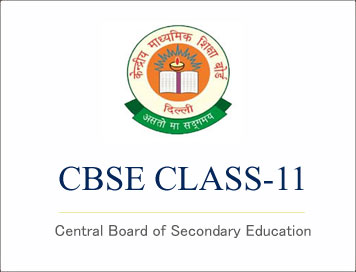CBSE Class-11 Syllabus 2019-20 (Entrepreneurship)
Disclaimer: This website is NOT associated with CBSE, for official website of CBSE visit - www.cbse.gov.in
CBSE Class-11 Syllabus 2019-20 (Entrepreneurship)
Rationale :
Development of school curriculum is a dynamic process responsive to the society and reflecting the needs and aspiration of its learners. Fast changing society deserves changes in educational curriculum particularly to establish relevance to emerging socio-economic environment; to ensure equity of opportunity and participation and finally promoting concern for excellence. In this context the course on entrepreneurship aims at instilling and stimulating human urge for excellence by realizing individual potential for generating and putting to use the inputs, relevant to social prosperity and thereby ensure decent means of living for every individual.
Objectives:
Acquiring Entrepreneurial spirit and resourcefulness
Familiarization with various uses of human resource for earning dignified means ofliving
Understanding the concept and process of entrepreneurship - its contribution in and role in the growth and development of individual and the nation
Acquiring entrepreneurial quality, competency and motivation
Learning the process and skills of creation and management of entrepreneurial venture
Cource Structure :
|
S. No. |
Unit |
Periods |
Marks |
|
1 |
Entrepreneurship - What, Why and How |
15 |
15 |
|
2 |
An Entrepreneur |
25 |
|
|
3 |
Entrepreneurial Journey |
30 |
20 |
|
4 |
Entrepreneurship as Innovation and Problem Solving |
30 |
|
|
5 |
Understanding the Market |
40 |
15 |
|
6 |
Business Arithmetic |
30 |
20 |
|
7 |
Resource Mobilization |
30 |
|
|
|
PROJECT WORK |
40 |
30 |
|
|
Total |
240 |
100 |
Unit 1: Entrepreneurship - What, Why and How
|
Contents |
Learning Outcomes |
|
After going through this unit, the student/ learner would be able to:
|
Unit 2: An Entrepreneur -
|
Contents |
Learning Outcomes |
|
After going through this unit, the student/ learner would be able to:
Entrepreneur
Entrepreneurship
|
Click Here To Download Full Syllabus
Courtesy: CBSE
